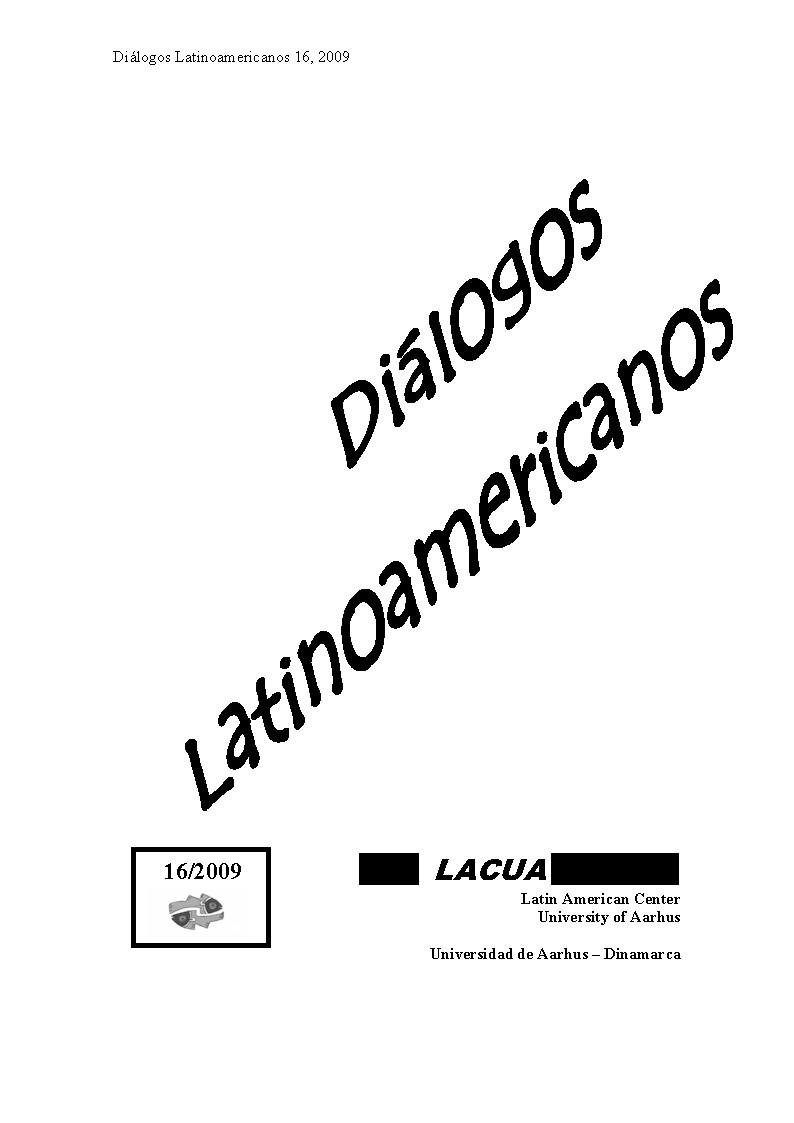Where Are ‘We’ in Transnational US Latino/a Studies?
DOI:
https://doi.org/10.7146/dl.v10i16.113574Keywords:
Interdisciplinarity, knowledge formation, space, place, transnationalism, US Latino/a studiesAbstract
The article considers various disciplinary, methodological, theoretical and ethical questions resulting from conducting transnational US Latino/a studies in practice. Drawing from research with a community of Latino prizefighters in Austin, Texas, it delineates academic discourses as spatially determined processes, demarcated by scholars’ institutional settings and individual agency in multiple geographic environments. The discussion suggests that being an ‘insider’ or ‘outsider’ is not a rigid condition but necessarily malleable, contingent upon a range of factors that shape up broader knowledge formation processes in and out of academia. In lieu of a nation-based research paradigm, the article calls for contestations of shifting scholarly loci—spatial between-ness—for important strategic purposes. Such mobility may effectively allow adopting viewpoints that are not necessarily available for those who operate within fixed disciplinary, methodological and intra-group boundaries, while providing scholars with innovative new approaches to conduct Latino/a studies research from de facto transnational and interdisciplinary perspectives.
References
Briggs, L., G. McCormick, and J. Way (2008) ‘Transnationalism: A Category of Analysis’, American Quarterly 60 (3): 625-648.
Brown, W. (2001) Politics Out of History. Princeton: Princeton University Press.
Casey, E. (2000) Remembering: A Phenomenological Study (2nd edn). Bloomington: Indiana University Press
Cresswell, T. (2006) On the Move: Mobility in the Modern Western World. New York: Routledge.
De Certeau, M. (1984) The Practice of Everyday Life, trans., Steven F. Randall Berkeley: University of California Press.
Fishkin, S. (2005). ‘Crossroads of Cultures: The Transnational Turn in American Studies--Presidential Address to the American Studies Association’, American Quarterly 57 (1): 17-57.
Fitzgerald, D. (2004) ‘Beyond “Transnationalism”: Mexican Hometown Politics at an American Labour Union’, Ethnic and Racial Studies 27 (2): 228-247.
Gutiérrez, D. and P. Hondagneu-Sotelo (2008) ‘Introduction: Nation and Migration’, American Quarterly 60 (3): 503-521.
Halttunen, K. (2007) ‘Transnationalism and American Studies in Place’ Japanese Journal of American Studies 18: 5-19.
Heiskanen, B. (2006) ‘Encounters with Jesus ‘El Matador’ Chávez: In and Out of the Ring’ Auto/Biography 14 (3): 187-205.
Hones, S. and J. Leyda (2005) ‘Geographies of American Studies’, American Quarterly 57 (4): 1019-1032.
Kaplan, A. (2005) ‘A Call for a Truce’, American Literary History 17 (1): 141-147.
Kerber, L. (2005) ‘Toward a History of Statelessness in America’ American Quarterly 57 (3): 727-749.
Lenz, G. (2002) ‘Toward a Dialogics of International American Culture Studies: Transnationality, Border Discourses, and Public Culture(s)’ in Pease D. and R. Wiegman (eds) The Futures of American Studies, pp. 461-485. Durham: Duke University Press.
Malkki, L. (1992) ‘The Rooting of Peoples and the Territorialization of National Identity among Scholars and Refugees’, Cultural Anthropology 7 (1): 24-44.
Massey, D. (2005) For Space. London: SAGE.
Massey, D. (1994) Space, Place, and Gender. Cambridge, UK: Polity Press.
Pease D. and R. Wiegman (eds) (2002), The Futures of American Studies Durham: Duke University Press.
Ngai, M. (2005) ‘Transnationalism and the Transformation of the "Other": Response to the Presidential Address’, American Quarterly 57 (1): 59-65.
Portes A. (2003) ‘Theoretical Convergencies and Empirical Evidence in the Study of Immigrant Transnationalism’, International Migration Review 37 (3): 874-892.
Rowe, J. (2002) The New American Studies. Minneapolis: University of Minnesota Press.
Rowe, J. (2000) Post-Nationalist American Studies. Berkeley: University of California Press.
Spivak, G. (2003) Death of a Discipline. New York: Columbia University Press.
Tuan, Y. (1977) Space and Place: The Perspective of Experience. Minneapolis: University of Minnesota Press.
Wolfe, A. (2003) ‘The Difference Between Criticism and Hatred: Anti-American Studies’ The New Republic (February 10): 25-31.
Downloads
Published
How to Cite
Issue
Section
License
Counting from volume 31 (2022), articles published in Diálogos Latinoamericanos are licensed under CC-BY 4.0. Read more about the license terms here https://creativecommons.org/licenses/by/4.0/.
No Creative Commons license applied on volumes 1-30. All rights reserved by the authors. Readers may download, read, and link to the articles, but they cannot republish the articles.
With the publication of volume 31 (2022), authors retain the full copyright to their articles and give Diálogos Latinoamericanos the right to the first publication. Authors also retain copyright to earlier versions of manuscripts, such as the submitted (pre-print) and the accepted manuscript (post-print).
Copyright to articles published in volumes 1-30 is held by the authors.





